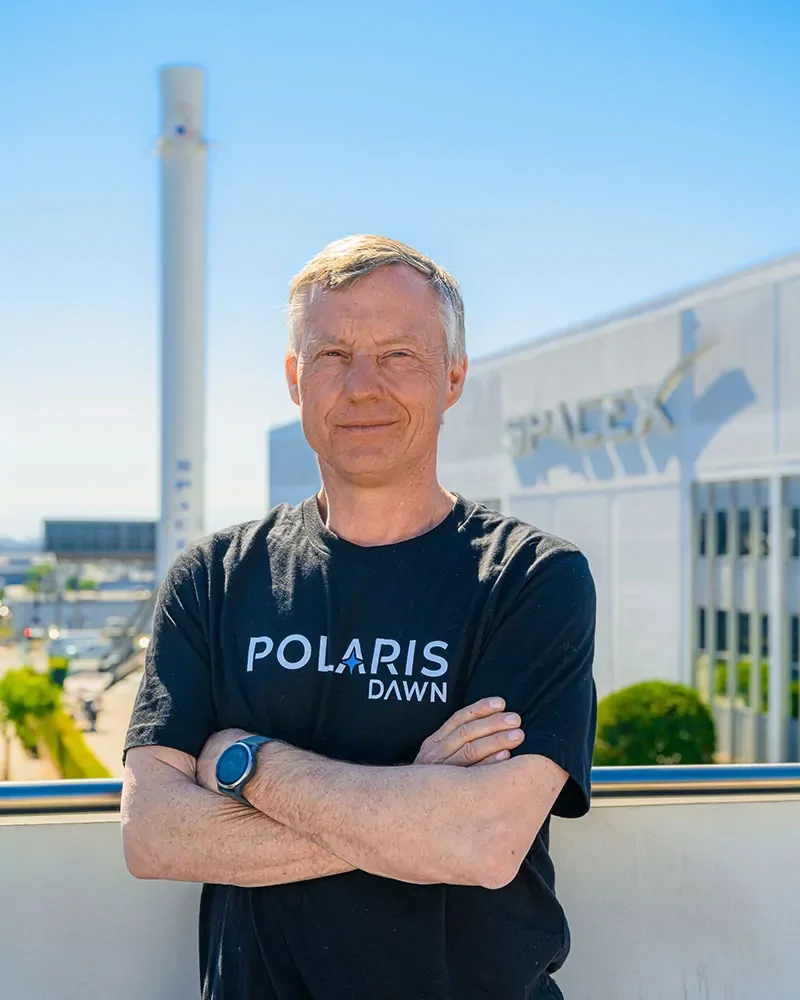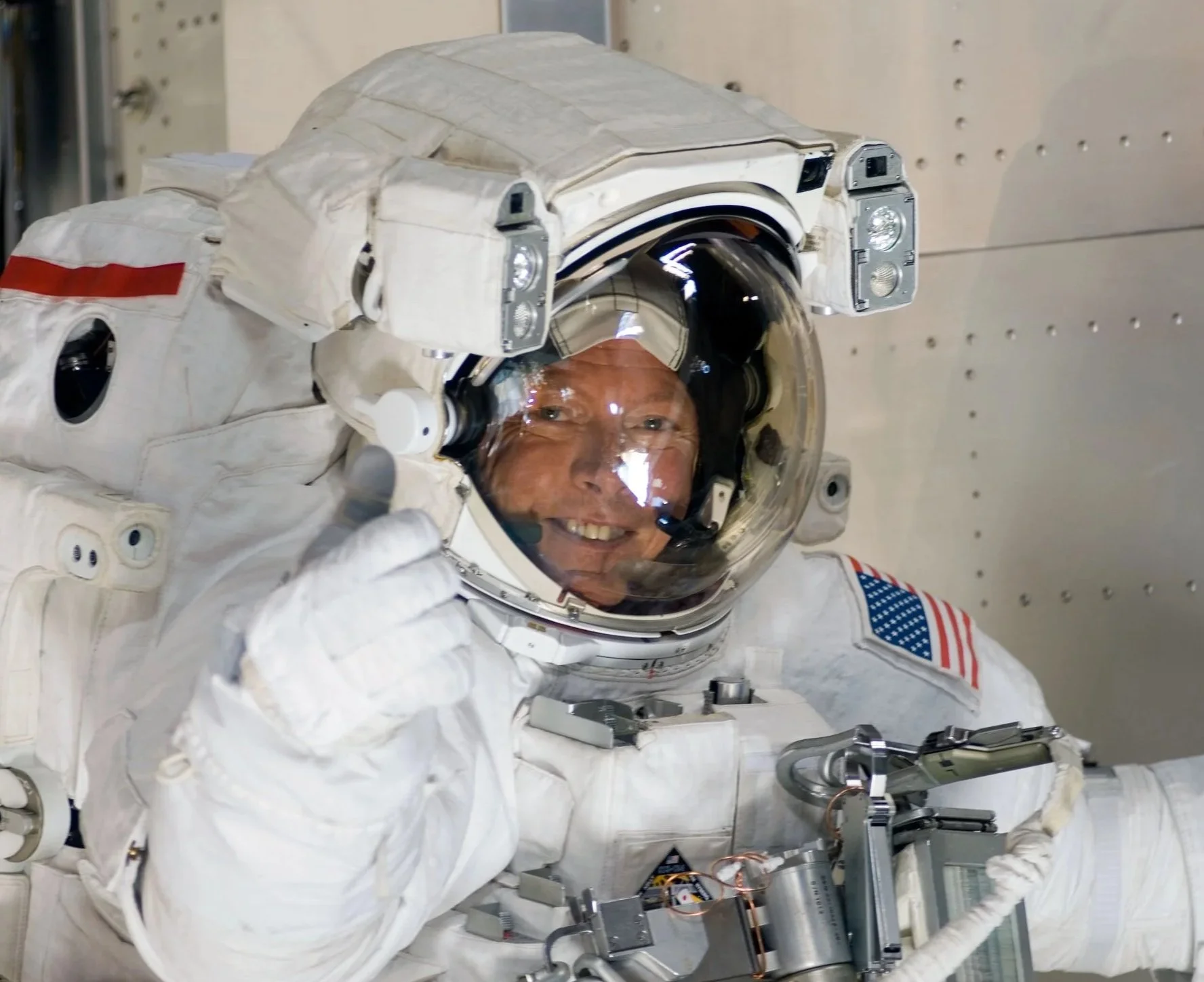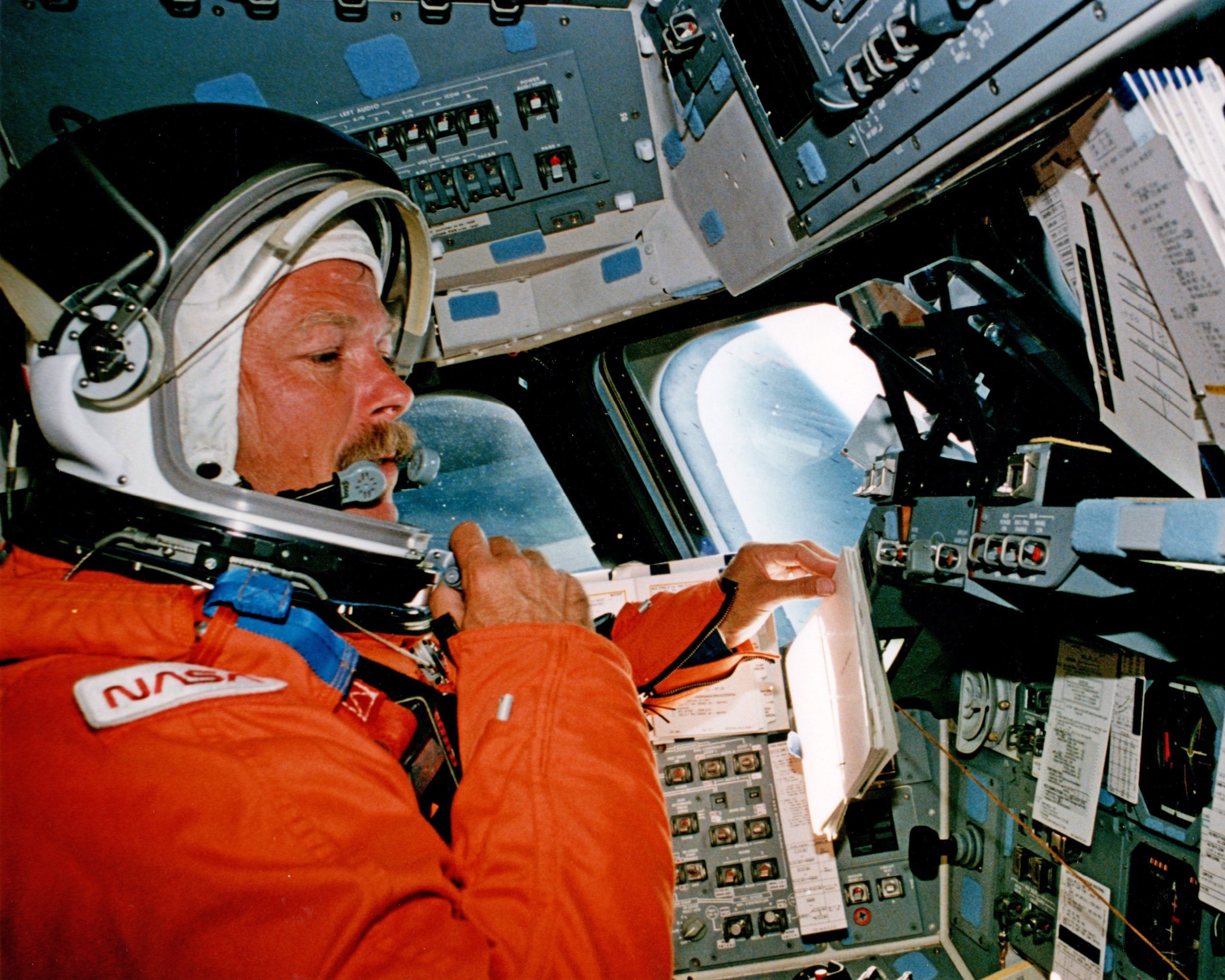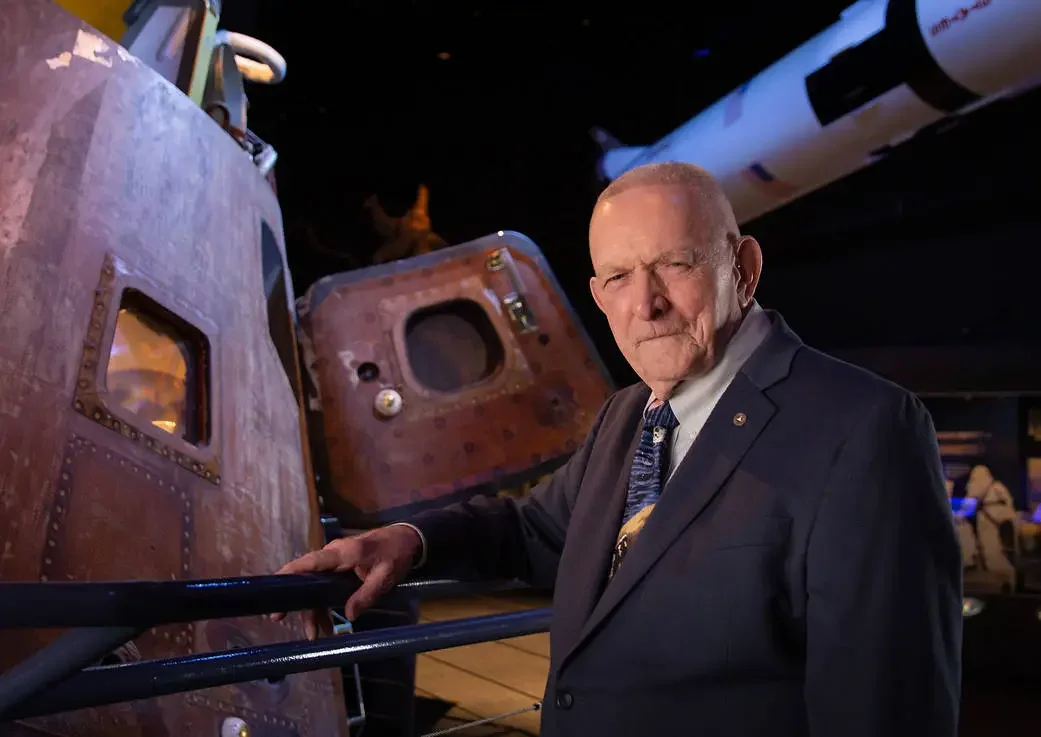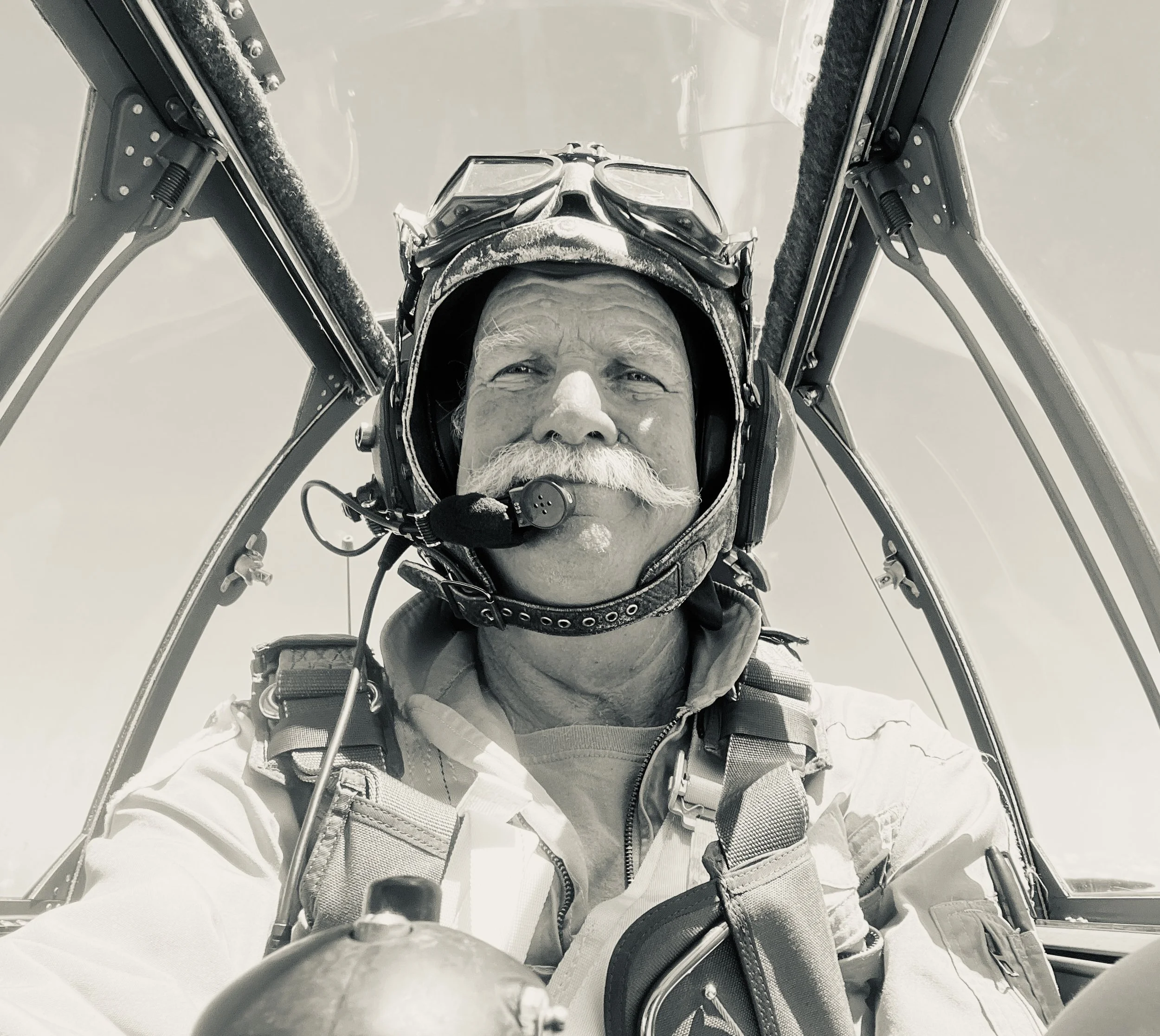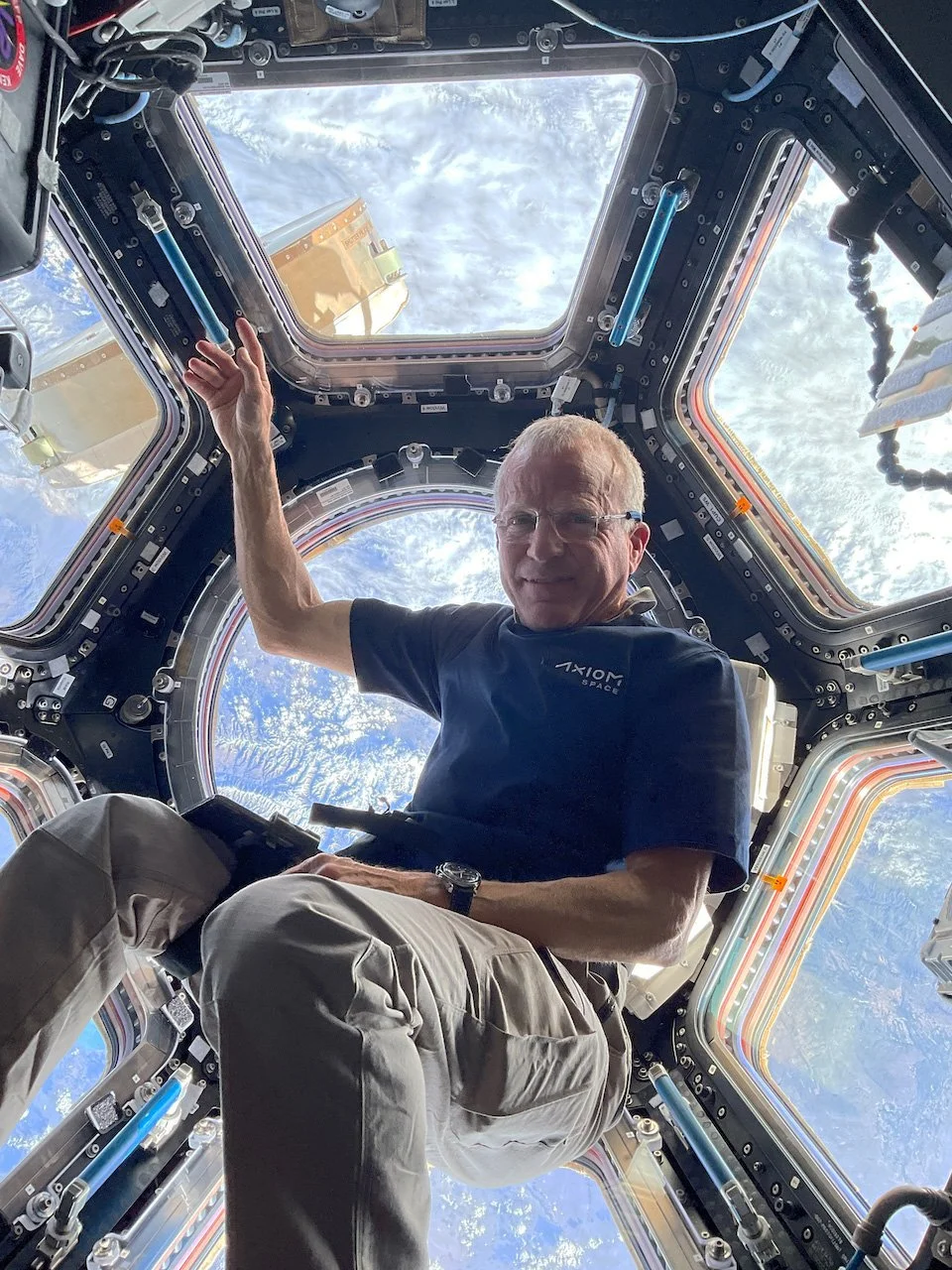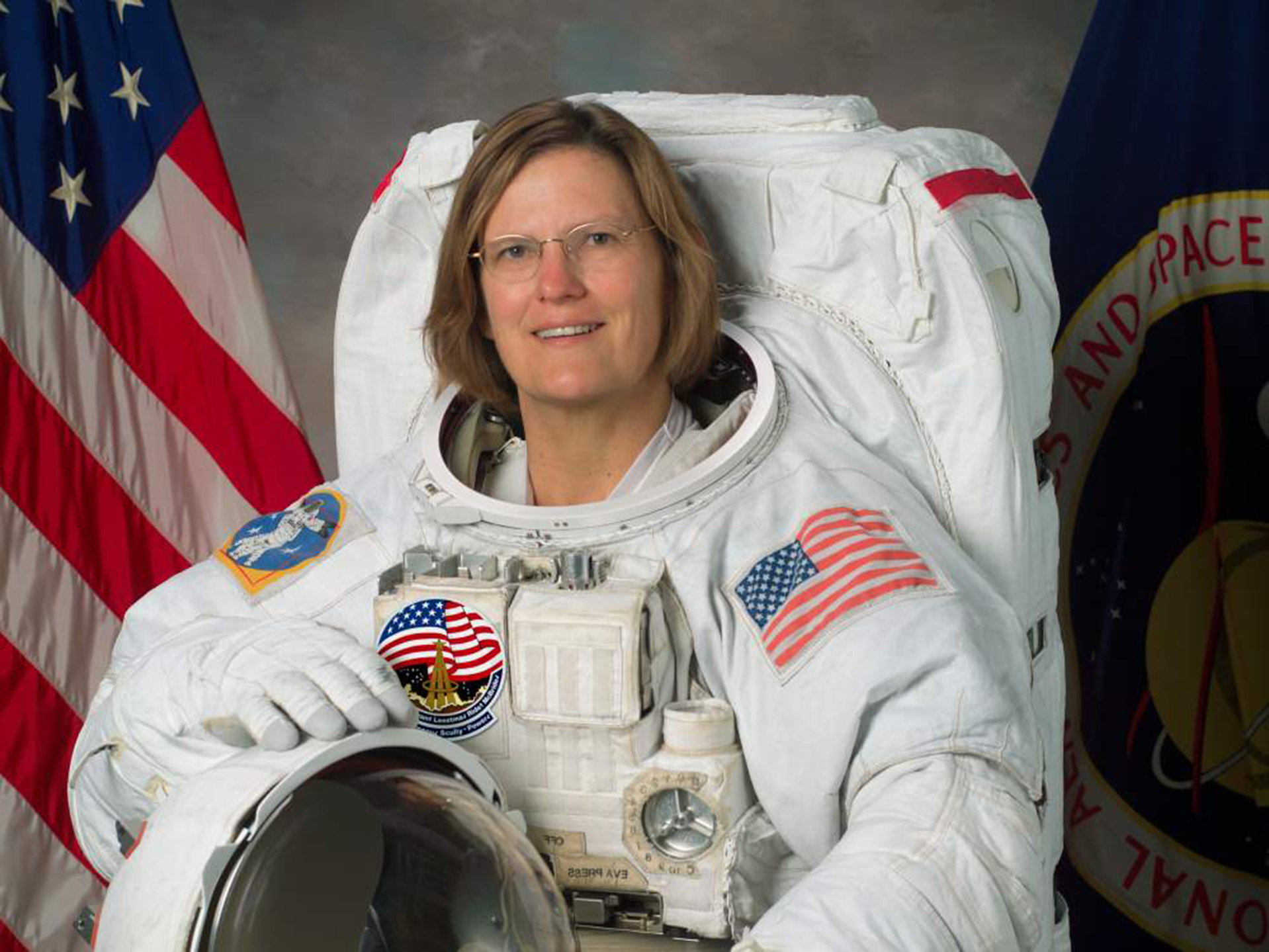
Learn from the Best
Quantum Commanders are more than mentors—they are world-class aviators, astronauts, industry pioneers, and seasoned professionals who bring unparalleled expertise to the Pilot-in-Command Curriculum. Their deep knowledge of aviation or aerospace operations, leadership, and decision-making provides students with real-world insights that go beyond textbooks and simulators.
One of the most impactful aspects of the program is the exclusive interviews and masterclasses led by Quantum Commanders, where they share firsthand experiences from cockpits, control towers, and global flight operations. These sessions provide invaluable perspectives on critical decision-making, overcoming adversity, and navigating the complexities of an aviation career. By learning directly from those who have mastered their craft, students not only gain technical expertise but also internalize the leadership principles and command presence that define a true Quantum Pilot.
As an Association Member of the National Aviation Hall of Fame, Quantum Leadership is honored to serve on its Nominations Committee—helping celebrate leaders whose achievements and character continue to inspire generations.
Chuck “Malibu” Aaron
Quantum Commander
Chuck Aaron is perhaps the most famous pioneering helicopter pilot in the world. Working with Red Bull North America, he spent several years inaugurating and perfecting helicopter aerobatics on the airshow circuit in his signature BO-105 helicopter. He has also flown in several major films and television series, notably flying the opening sequence to the “James Bond” film, SPECTRE, in Mexico City. Accolades and honors include: Living Legends of Aviation, Art Scholl Award, Helicopter Pilot of the Year, Lifetime Achievement Award (HAI), Wright Brothers Master Pilot, and the Sikorsky Rescue Award. He is also a proud member of the Society of Experimental Test Pilots.
We are thrilled to have Chuck as our first “Quantum Commander” and overall supporter. Chuck represents the spirit of exceptionalism in aviation and his deep experience as pilot-in-command will be of use to all our future leaders.
Julie Clark
Quantum Commander
Rising from personal tragedy with uncommon resolve, Julie Clark built a career that redefined what was possible for women in aviation. One of the first female pilots hired by a major U.S. airline, she rose to become an Airbus A-320 captain, logging almost 35,000 flight hours during a career that spanned more than four decades. Further, in parallel, she also became one of America’s most admired solo aerobatic performers, thrilling millions with her patriotic, precision routines in her meticulously restored T-34 Mentor, Free Spirit.
Her accolades and honors are among the most distinguished in aviation: Living Legends of Aviation, the Wright Brothers Master Pilot Award, the International Council of Air Shows Sword of Excellence, the Katharine Wright Memorial Trophy, the Women in Aviation Pioneer Hall of Fame—and now, her pathbreaking legacy has been permanently enshrined with her induction into the prestigious National Aviation Hall of Fame.
A lifelong mentor and advocate, Julie continues to inspire future aviators through speaking, scholarships, and nonprofit service. Quantum Leadership is honored to partner with Captain Clark in our mission to empower the next generation of aviators—her courage, integrity, and passion for flight embody the kind of leadership we strive to cultivate. Her story is one of skill, heart, and unwavering commitment to lifting others into the skies.
Eileen “Mom” Collins
Quantum Commander
Eileen Collins is one of the most respected and pioneering figures in aerospace history. A retired U.S. Air Force colonel and test pilot, she became the first woman to pilot a U.S. spacecraft in 1995, and in 1999 made history again as the first woman ever to command one—leading the STS‑93 mission aboard Space Shuttle Columbia. Across four missions—aboard Discovery, Atlantis, and Columbia—she deployed critical satellites, led the Chandra X-ray Observatory’s deployment, and later commanded NASA’s return-to-flight STS‑114 mission following the Columbia tragedy.
Her calm under pressure and extraordinary leadership have earned her induction into the Astronaut Hall of Fame, the National Aviation Hall of Fame, and the Living Legends of Aviation, as well as recognition by the Smithsonian’s National Air and Space Museum, which holds artifacts from her career and regularly features her in its public programming. She continues to advocate for STEM education, space exploration, and public service.
She exemplifies the spirit of a true “Pilot‑in‑Command”—not just in the cockpit, but in shaping the course of history.
Jimmy “Guido” DiMatteo
Quantum Commander
Captain Jim “Guido” DiMatteo is one of the most accomplished tactical aviators of his generation — and one of the most inspiring voices in aviation leadership today. In his 27-year U.S. Navy career, he flew five frontline fighters, flew combat in Desert Storm, and made history by commanding both of the Navy’s TOPGUN Adversary Squadrons. His leadership earned him the Naval Aviation “Triple Crown” and titles like Fighter Pilot of the Year, Adversary Pilot of the Year, and the TOP HOOK carrier-landing award.
After retiring from the Navy, Jim led on the global stage—serving as Race Director for the Red Bull Air Races, directing the Breitling Jet Team’s U.S. Tour, and managing flight operations at EAA AirVenture Oshkosh. He still flies the F‑5 Advanced Tiger with Tactical Air Support, preparing Navy and Air Force pilots for real-world adversaries.
Matthias Dolderer
Quantum Commander
Matthias Dolderer is one of Europe’s most celebrated aviators and a Red Bull Air Race World Champion. In 2016 he became the first German to capture the crown, dominating the season with such consistency that he secured the title early at Indianapolis Motor Speedway. His performance that year redefined excellence in the sport and placed him firmly among air-racing’s greats.
Raised at Germany’s Tannheim Airfield—site of the famed Tannkosh fly-in, often called the “Oshkosh of Europe”—he earned national titles that reflected his precision and competitive drive. He and his sister, Verena, now carry forward the family legacy at the airfield and its flight school.
Beyond racing, Dolderer has built a career that bridges heritage and spectacle. At Salzburg’s Hangar-7, he flies with the Flying Bulls, one of the world’s most admired historic flight operations. Their immaculate fleet—including icons such as the Corsair and B-25 alongside rarities like the P-38 Lightning—has made Hangar-7 a jewel of European aviation culture. Performing from this stage, Dolderer has become a fixture of Europe’s airshow circuit and a symbol of aviation excellence.
He authored Kunstflugzeuge (2013) and voiced “Jet Echo” in Disney’s Planes, bringing the spirit of flight to audiences worldwide. A mentor as well as a champion, he embodies the artistry and joy of aviation while inspiring the next generation.
Todd “Leif” Ericson
Quantum Commander
Todd Ericson is the kind of pilot you turn to when the mission hasn’t been done before. A retired U.S. Air Force Colonel and experimental test pilot, he has lived in the world Tom Wolfe called The Right Stuff—where courage is quiet, standards are unforgiving, and composure under risk is the real measure. With 11,500+ hours in 140+ aircraft, he flew and tested nearly every F-16 variant and carried that test-pilot grace beyond the atmosphere.
After the Air Force, Todd helped shape commercial human spaceflight. At Virgin Galactic, he led safety and test operations for SpaceShipTwo, guiding a new spacecraft toward maturity with a simple principle: boldness only counts if you bring people home. He later flew with Virgin Orbit, helping pioneer air-launched orbital missions and expand civilian access to space.
Today, Todd serves as Mission Director for the Polaris Program, working closely with SpaceX to advance civilian spaceflight. Under his direction, Polaris Dawn reached the highest Earth orbit since Apollo and delivered the first commercial spacewalk—milestones that widen both capability and who exploration is for. He also serves as Senior Advisor to the NASA Administrator for aerospace research and development.
Across every chapter, Todd embodies true command: a first-mover’s courage, a test-pilot’s rigor, and the steady inner posture that makes the frontier feel reachable for everyone who follows.
Alan Eustace
Quantum Commander
Alan is a trailblazing engineer and adventurer who once jumped from the edge of space. After a successful career as Google’s Senior Vice President of Knowledge, Alan teamed up with a fearless crew of innovators to design a custom spacesuit and balloon system that lifted him 25 miles above Earth. In 2014, he shattered three world records in a single skydive — including the highest jump ever — reaching speeds faster than the speed of sound. His record-breaking suit is now featured at the Smithsonian National Air and Space Museum.
A passionate pilot and skydiver, Alan holds advanced certifications in both airplanes and helicopters, and was inducted into the International Skydiving Hall of Fame in 2019. His daring work earned top honors in aviation and action sports, including the prestigious Laureus Award, the FAI’s Milestone Award, and recognition as a finalist for the Collier Trophy — one of the highest honors in aerospace.
Alan is an amazing human being, a methodical trailblazer, and peerless leader. We are thrilled to have him as a foundation supporter and leadership lecturer/interviewee as part of the Quantum Curriculum.
Michael Fossum
Quantum Commander
Michael E. Fossum is the one you look to when the crew is smaller, the margins are thinner, and the world is depending on a fragile outpost in orbit. A retired U.S. Air Force colonel and distinguished graduate of the Air Force Test Pilot School, he began in the flight-test world as an engineer and aircrew member, logging more than 2,000 hours in 35 aircraft types.
Over 19 years at NASA, Fossum flew three space missions—STS-121, STS-124, and Expedition 28/29 to the International Space Station. He arrived at the hinge between eras, watching the last Space Shuttle dock and helping carry the Station into its post-Shuttle future. He spent 194 days in space, made seven spacewalks, and eventually commanded the ISS during Expedition 29, when launch delays left the Station short-crewed and every decision sharper.
Today, Fossum serves as a vice president of Texas A&M University, chief operating officer of Texas A&M Galveston, and superintendent of the Texas A&M Maritime Academy, guiding a deeply mission-driven training environment. An Eagle Scout, Distinguished Eagle Scout Award recipient, and longtime Scoutmaster before taking on his current role, he still lives by Scouting’s quiet code: serve first, prepare well, carry your share of the load. Those are the habits of inner command Quantum Leadership exists to pass on—and why we’re honored to share his story with the next generation of pilots-in-command.
Robert “Hoot” Gibson
Quantum Commander
Captain Robert “Hoot” Gibson is one of the most accomplished pilots and astronauts of our time. A former Navy fighter pilot, test pilot, NASA astronaut, airline captain, and air race champion, he has logged over 14,500 flight hours in more than 160 aircraft over a 55-year career.
In the Navy, he flew F-4 Phantoms and F-14 Tomcats in combat over Southeast Asia and completed over 300 carrier landings. A TOPGUN graduate and first in his class at the U.S. Naval Test Pilot School, he was selected by NASA in 1978.
Captain Gibson flew five Space Shuttle missions—four as Commander—aboard Challenger, Columbia, Atlantis, and Endeavour, including the first docking with Russia’s Mir space station. He later served as NASA’s Chief Astronaut during a pivotal era of space exploration.
After NASA, he flew as a commercial airline captain and won the Unlimited Gold at the 2015 Reno Air Races. His many honors include the Distinguished Flying Cross, the Yuri Gagarin Gold Medal, and induction into both the Astronaut and National Aviation Halls of Fame.
Captain Gibson exemplifies leadership, excellence, and courage—values at the heart of the Quantum Leadership Foundation.
Stuart Harris
Quantum Commander
Pioneer in space and wilderness medicine | Emergency physician | Leadership educator
N. Stuart Harris is a pioneer in wilderness and space medicine, with decades of experience delivering care in the world’s most extreme environments. At Massachusetts General Hospital and Harvard Medical School, he’s led innovation beyond traditional settings — from high-altitude expeditions and Arctic communities to human spaceflight.
He is founding Chief of the SPEAR MED Division (Space, Ecological, Arctic, and Resource-limited Medicine) at MGH, and launched the hospital’s Wilderness Medicine (2007) and Space Medicine (2022) Fellowships. He also serves as Editor-in-Chief of the 8th Edition of Wilderness Medicine, the 2,600-page textbook that redefines health through an ecological lens.
A Fellow of The Explorers Club and the Royal College of Physicians of Edinburgh, Stuart also chairs the Board of the National Outdoor Leadership School (NOLS), where he co-developed the Medicine in the Wild program. His work reflects a belief that leadership is forged through experience, humility, and the ability to act under uncertainty.
Whether on a glacier, in a trauma bay, or advancing space medicine, Stuart brings to the Quantum Leadership Foundation a spirit of exploration — and a vision for leading where the map runs out.
Gene Kranz
Quantum Commander
In the 1960s and ’70s, when America was racing to explore space, Gene Kranz was the man in the white vest at the heart of Mission Control. As NASA’s lead flight director, he guided teams of engineers—many of them barely out of college—through history-making victories and life-threatening challenges. He helped land Apollo 11 on the Moon, and just a year later, when an explosion crippled Apollo 13, Kranz rallied his team to bring the astronauts safely home — a real-life drama that later inspired movies and books.
After the Apollo 1 fire, Kranz demanded that his controllers adopt two words as their creed: “Tough and Competent.” For him, it meant preparation without shortcuts, accountability without excuses, and courage without hesitation. Those qualities didn’t just save missions—they shaped NASA’s identity for decades.
Today, the same spirit applies to every young pilot and leader. To be “Tough and Competent” is to train until the hard things feel natural, to face setbacks with resilience, and to step forward when the moment demands it. Gene Kranz’s story shows that when lives are on the line and history is watching, excellence isn’t optional—it’s the only way.
Warren Pietsch
Quantum Commander
Warren Pietsch grew up under the hum of propellers and the legacy of his family’s aviation business, where the craft of restoring airplanes was as natural as breathing. At ten years old he painted a P-51 Mustang on his bedroom wall, dreaming of flying one himself—and by sixteen he was already in the air. That boyhood reverence for flight never left him, and it has guided a lifetime spent preserving history and sharing it with others.
As co-founder of the Dakota Territory Air Museum and a leader at Pietsch Aircraft Restoration, Warren has returned countless vintage aircraft to flight, honoring both the machines and the stories behind them. Among them is the celebrated P-51C Mustang Thunderbird—a record-setting racer once owned by Jimmy Stewart and Jackie Cochran—that he rescued from wreckage and returned to airshow skies at places like Oshkosh and Reno. His logbook also carries the weight of aviation’s great icons, from the Supermarine Spitfire and P-40 Warhawk to the Corsair, Wildcat, and Zero.
More than a pilot, Warren is a steward of aviation heritage. Whether racing a Spitfire, flying Thunderbird before a crowd, or speaking quietly with a museum visitor, he carries the same straightforward kindness and authenticity that have earned him respect across the aviation world. In every role, he reflects a deep reverence for those who came before him, and a commitment to pass that legacy forward to the next generation.
John Shoffner
Quantum Commander
John Shoffner served as Pilot of Axiom Space’s Ax-2 mission to the International Space Station in 2023, becoming the 598th human to orbit Earth. During the mission, he conducted scientific research and led educational outreach to students around the world, combining his passion for space with a lifelong commitment to learning and exploration.
An accomplished aviator with over 8,500 flight hours, Shoffner holds ratings in helicopters, seaplanes, ex-military jets, and vintage warbirds. He has flown airshows for nearly 30 years and is the pilot of “Wicked Wabbit,” one of the last airworthy P-47D Thunderbolts. He is also a professional endurance racecar driver, with multiple podium finishes on Europe’s most demanding circuits, including Germany’s Nürburgring.
Shoffner began his career as the founder of Dura-Line Corporation, a pioneer in global fiber optic infrastructure. Today, through the Perseid Foundation, he champions STEAM education across underserved communities in Appalachia, helping young people recognize their potential and pursue lives of purpose, curiosity, and courage.
Fred Sorenson
Quantum Commander
Famously known for his role as the seaplane pilot “Jock Lindsey” in the beginning of the film, Raiders of the Lost Ark, or as the pilot who rescued cast and crew of Jurassic Park after a hurricane hit, Fred Sorenson is a legendary real pilot. With almost 50,000 flight hours, flying everything from seaplanes to heavy metal, and everywhere—he is a renowned international ferry pilot—he has and continues to be a mentor to aviators wishing to set international records. The Walt Disney company even has a restaurant fully themed from his renowned Indiana Jones’ character, Jock Lindsey’s Hangar Bar, in Disney Springs, Orlando.
Fred’s exploits are legendary, and we are proud to have him as a foundation supporter (as well as a technical advisor for the upcoming “Around the World” trip). His experience and character epitomize the humor, reward, innovation, and daring it takes to be a successful aviation leader. Oh, and don’t forget “backbone”— “that’s just my pet snake Reggie!”
Kathy Sullivan
Quantum Commander
Kathryn D. Sullivan is an astronaut, oceanographer, and explorer whose career has redefined what’s possible—on Earth, in space, and in the deep ocean. As a NASA mission specialist, she became the first American woman to walk in space, flew on three Space Shuttle missions, and helped deploy the Hubble Space Telescope. Years later, she made history again as the first person to both orbit the Earth and reach Challenger Deep, the ocean’s deepest point.
Her commitment to science and public service continued beyond NASA. As Administrator of NOAA, she led national efforts in environmental monitoring, climate research, and weather forecasting. She has been inducted into the Astronaut Hall of Fame, the National Aviation Hall of Fame, the National Academy of Engineering, and the American Academy of Arts and Sciences.
A Fellow of The Explorers Club since 1981—one of its first female members—she later received its highest honor, the Explorers Club Medal. The Smithsonian Institution preserves several of her flight artifacts and named her Ambassador-at-Large for the National Air and Space Museum. (Photo: NASA)
Victor Vescovo
Quantum Commander
Victor Vescovo is a highly accomplished pilot — but his mastery of the pilot-in-command mindset extends far beyond the cockpit. Whether navigating the upper atmosphere, the deep ocean, or high-stakes investments, he brings the same discipline, focus, and leadership under pressure that defines the best aviators and astronauts.
He is the only person in history to stand on Earth’s highest point, dive to its deepest trench, and fly beyond its atmosphere. As leader of the Five Deeps Expedition, he piloted a submersible to the deepest point in each of the world’s oceans, including over a dozen dives to Challenger Deep in the Mariana Trench. He remains the only person to solo dive to the Titanic, and in 2022, he flew to space aboard Blue Origin’s New Shepard, completing a trifecta of extreme exploration unmatched in the modern era.
Vescovo is a commercially rated pilot in airplanes, seaplanes, gliders, and helicopters, and served for 20 years in the U.S. Navy Reserve, retiring as a Commander. He also built a successful career as a private equity investor, leading major ventures in aerospace, defense, and industrial innovation. In 2025, the U.S. Navy named the ocean surveillance vessel USNS Victor Vescovo (T‑AGOS 26) in his honor — a rare distinction for a living explorer.
Victor Vescovo doesn’t just go to the edge — he leads there. With calm precision and unshakable resolve, he has brought the pilot-in-command ethos to the sea floor, the stratosphere, and the most challenging frontiers of human experience.
Patty Wagstaff
Quantum Commander
Patty Wagstaff is a force of nature in the world of aviation—fearless, focused, and fiercely dedicated to excellence. One of the most celebrated aerobatic pilots of all time, she broke barriers as the first woman to win the U.S. National Aerobatic Championship, a title she went on to defend multiple times. A six-time member of the U.S. National Aerobatic Team, Patty has wowed audiences around the globe with her breathtaking precision, fluid artistry, and signature style.
Her aircraft, the iconic Goodrich Extra 260, now hangs in the Smithsonian National Air & Space Museum—an enduring symbol of her barrier-breaking legacy. Patty’s contributions have earned her aviation’s highest honors, including the Art Scholl Showmanship Award, the ICAS Sword of Excellence, induction into the National Aviation Hall of Fame, and the National Air and Space Museum’s Award for Current Achievement.
But beyond the accolades, Patty is known for her warmth, integrity, and unwavering generosity of spirit. She has mentored countless young pilots with wisdom and patience, and continues to be a guiding light—especially for women in aviation. A true original, Patty Wagstaff is more than an icon; she is a role model whose courage and grace continue to inspire the next generation to fly higher.
Dean “Wilbur” Wright
Quantum Commander
Dean “Wilbur” Wright has lived his life in afterburner—pushing limits, inspiring others, and never looking back. A retired U.S. Air Force Lieutenant Colonel and elite fighter pilot, Wilbur has logged over 4,000 hours in frontline jets including the A-10, F-16, Harrier, and the F-117 Stealth Fighter. From combat missions in Desert Storm to classified operations in the Middle East, he’s flown at the intersection of danger, discipline, and trust.
His career hit full throttle when he joined the U.S. Air Force Thunderbirds, flying over 200 airshows in nine countries as a Solo Pilot and electrifying millions with the precision of flight. Afterward, he led a top-down overhaul of Air Combat Command’s demo safety protocols—bringing the same clarity and rigor to leadership on the ground.
Today, Wilbur leads the Patriots Jet Team—the largest civilian-owned jet aerobatic team in America—and continues to fly Gulfstream 550 and 600 jets for top-tier clients. Through the Patriots Jet Team Foundation, he helps mentor the next generation of aviators and leaders, modeling what it truly means to be Pilot-in-Command of your life.
MENTORSHIP PROGRAM
-
Quantum MENTORS
are experienced professionals: airline pilots, corporate jet pilots, current and former military pilots, air traffic controllers, business leaders, and an aviation medical examiner. Some of our current mentors include:
Cody, American Airlines
Leah, USAF
Paul, TBM Corporate Pilot
Massimo, ATC
Jeff, United Airlines
Cody, Corporate Jet Pilot
Brooke, Endeavor/CFI
Steve, United Airlines (Ret.)
Rachel,VP-Aviation Contractor
-
Career & Skill Development
Mentorship provides firsthand industry knowledge, career guidance, and skill-building opportunities that fast-track professional growth. By learning from experienced pilots and aviation leaders, mentees gain real-world insights, confidence, and decision-making skills that accelerate their journey from student to professional aviator. A strong mentorship connection opens doors to networking, career advancement, and leadership opportunities that might otherwise take years to develop.
-
Empowering Female Pilots
For women in aviation, mentorship is a critical tool for overcoming barriers and fostering inclusivity. Female pilots benefit from strong role models, representation, and a supportive network that helps them navigate an industry where they are often underrepresented. A mentor provides insight into career progression, work-life balance, and strategies to build confidence in male-dominated spaces. By fostering strong female mentorship networks, we empower women to rise into leadership roles, inspire future generations, and reshape the future of aviation.
-
Navigating Challenges & Building Resilience
The aviation industry presents unique challenges—technical, operational, and psychological. A mentor helps new pilots navigate obstacles with expert advice, offering guidance on overcoming setbacks, adapting to industry changes, and staying resilient in high-pressure situations. Through mentorship, aspiring pilots gain the mindset of a leader, learning how to make informed decisions, manage risks, and thrive in demanding environments.







